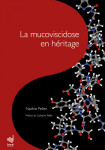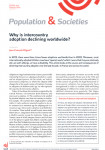La mucoviscidose en héritage



It is almost a truism to say that the family environment in sub-Saharan Africa is complex. The contours of membership groups—residential, economic, lineage—are variable; relationships between spouses and family members take a wide range of forms (polygamy, sizeable age differences between spouses, intergenerational co-residence, classificatory system of kinship) and mobility is high, starting in childhood. In short, individuals—especially children—are bound ...

Because of how extended and complex they are, family structures and networks in sub-Saharan Africa are often thought of as institutions that enable people to cope with vulnerability and diminish the impact of inequalities and sudden adverse economic and family events, as they allow for redistributing the costs of taking care of individual members. Does this mean that wellbeing and outcomes ...

In this section, the question of childhood and parenthood was explored in terms of normative frames and the subjective approach to personal experience. The representations people have of individuals (children, parental frames of reference) and of family relations were studied for the purpose of identifying the normative injunctions around parenting and childhood. Norms and representations. Attention here was on what figures ...
Presented by Muhammad Zaman (Department of Sociology, Quaid-i-Azam University, Islamabad, Pakistan) ; discussant : Christophe Guilmoto (IRD/Ceped)
Presented by Timothy M. Smeeding (University of Wisconsin) ; Discussant : Hippolyte d’Albis (U. Paris 1, PSE, Ined)
Presented by Alain Thalineau et Laurent Nowik (UMR CITERES – Université de Tours) ; discussante : Claudine Attias-Donfut (CNAV, Associée au Centre Edgar Morin, CNRS/EHESS)
Santé publique, colonialisme et médicaments miracles en Afrique.Presented by Guillaume Lachenal (Université Paris Diderot et Institut Universitaire de France) ; discussant : Anne Marie Moulin (CNRS)
There is limited understanding of the impact of policies that enable parents to combine work and family responsibilities on child and parental outcomes. Exploiting legislation enacted in the UK in 2003, we examine whether granting working parents the right to request flexible work arrangements influences the health and well-being of parents and children. Based on longitudinal data from the Millennium ...
